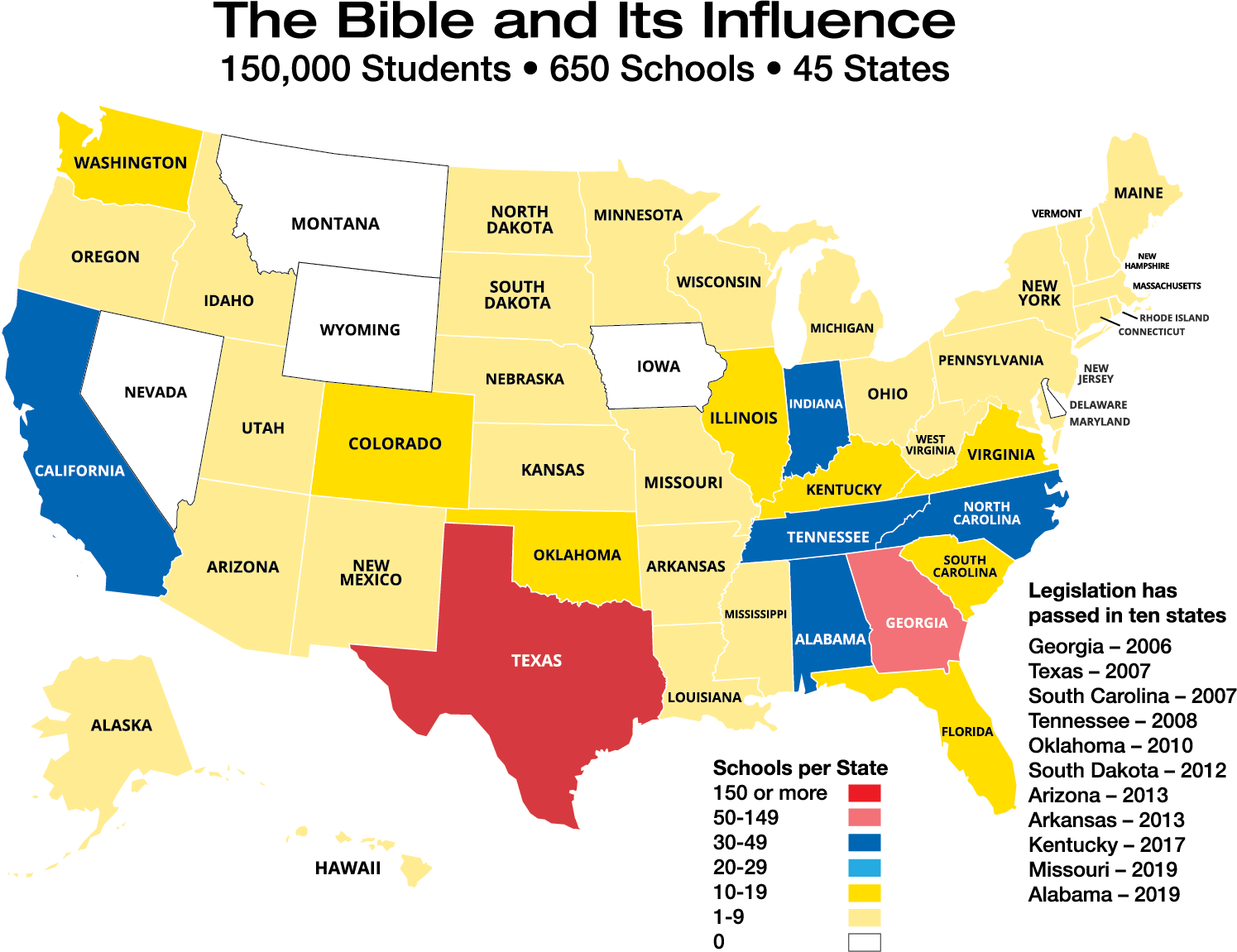Academic Bible study is legal in the U.S.
1. The United States Supreme Court Allows it.
Justice Tom Clark of The U.S. Supreme Court in Abington v. Schempp in 1963 writing for the majority in an 8-1 decision said “In addition, it might well be said that one’s education is not complete without a study of comparative religion or the history of religion and its relationship to the advancement of civilization. It certainly may be said that the Bible is worthy of study for its literary and historic qualities. Nothing we have said here indicates that such study of the Bible or of religion, when presented objectively as part of a secular program of education, may not be affected consistently with the First Amendment.”
2. 11 States Endorse it.
Since 2006, 11 U.S. State legislatures have adopted laws endorsing the teaching of the Bible academically – Georgia, Texas, South Carolina, Tennessee, Oklahoma, South Dakota, Arizona, Arkansas, Kentucky, Missouri, and Alabama.
3. Local Schools Embrace it.
To date, 650 schools and 150,000 students in 45 states have been taught the material in this Bible literacy course.
2. 11 States Endorse it.
Since 2006, 11 U.S. State legislatures have adopted laws endorsing the teaching of the Bible academically – Georgia, Texas, South Carolina, Tennessee, Oklahoma, South Dakota, Arizona, Arkansas, Kentucky, Missouri, and Alabama.
3. Local Schools Embrace it.
To date, 650 schools and 150,000 students in 45 states have been taught the material in this Bible literacy course.
Any class about the Bible must be taught in an objective, academic manner. The class should neither promote nor disparage religion, nor should it be taught from a particular sectarian point of view. That's why standardizing the material helps ensure compliance.
Because of its quality and adherence to academic standards, the material Essentials in Education teaches has never faced a legal challenge in its 12-year history.
Because of its quality and adherence to academic standards, the material Essentials in Education teaches has never faced a legal challenge in its 12-year history.
Taught in classrooms across the U.S.
